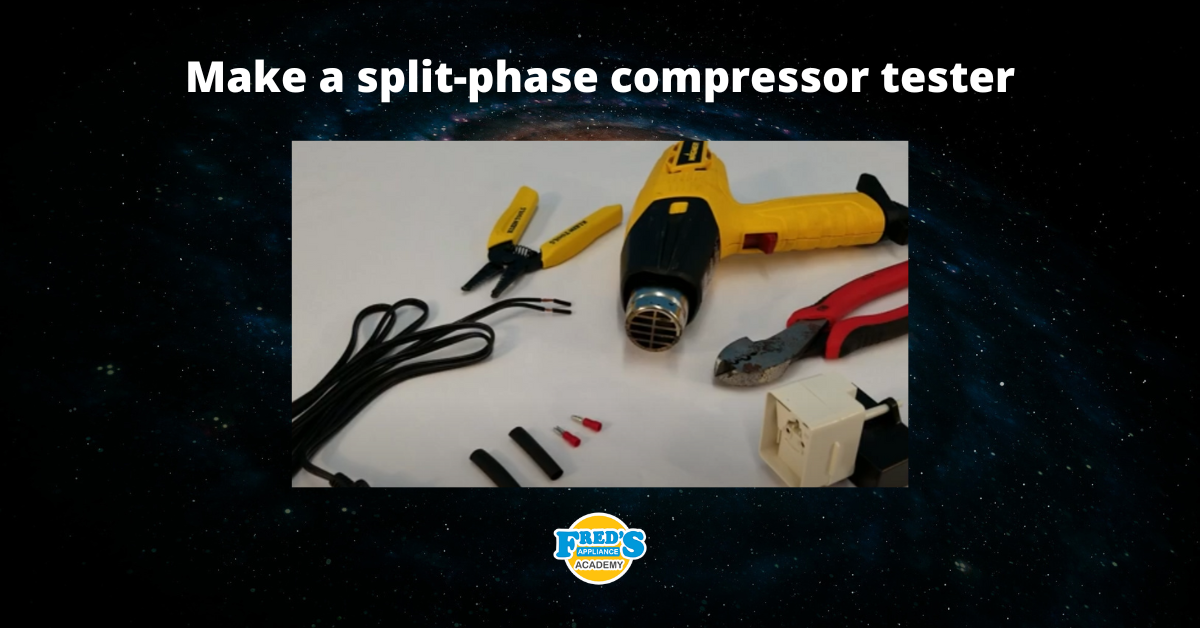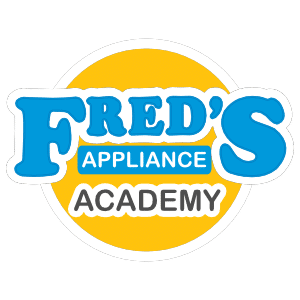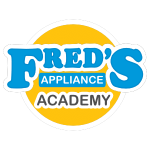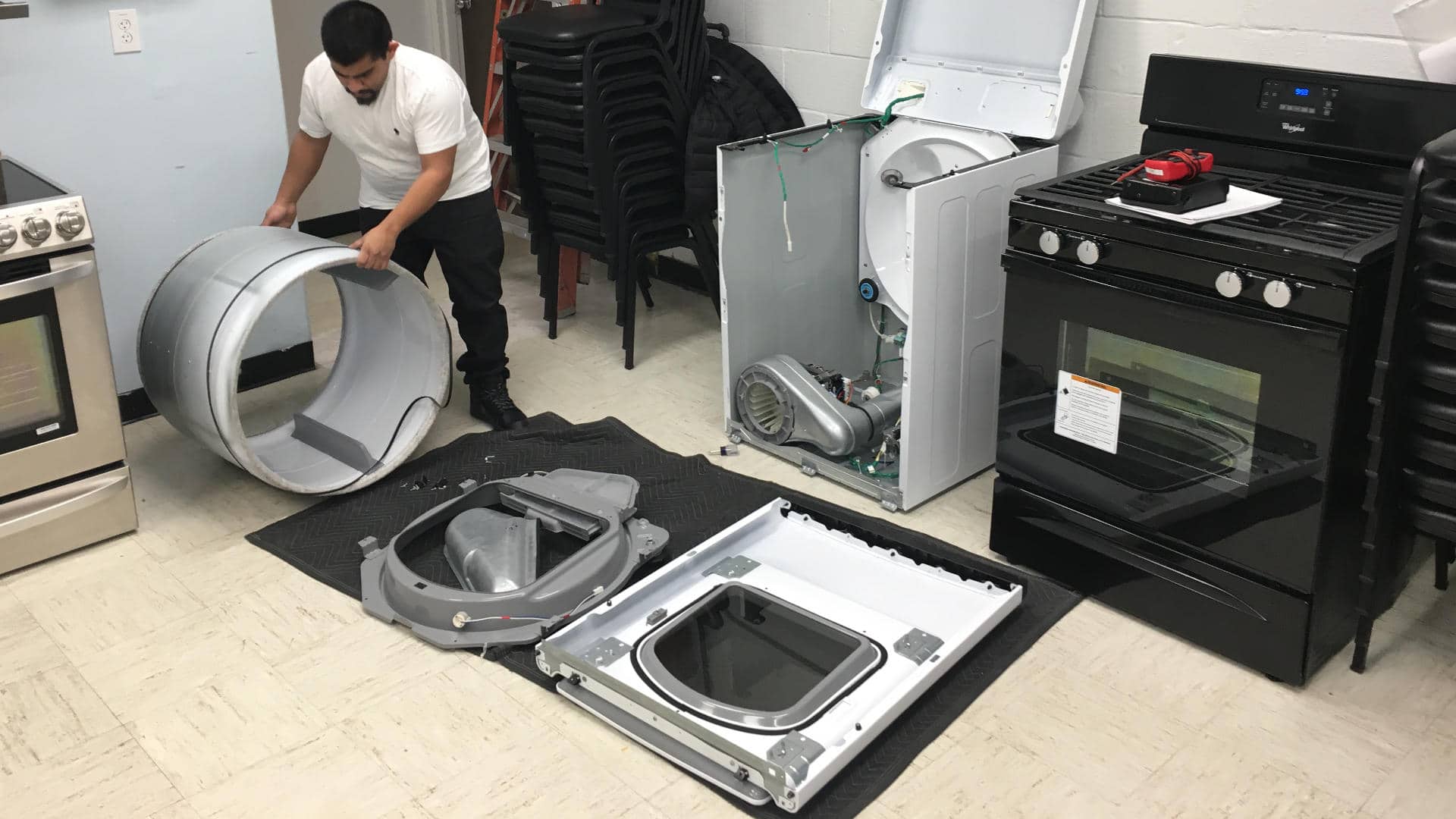
Working with tools is an essential part of appliance repair. You have to be comfortable with your screwdriver and combination wrench sets. You need to be handy with pliers and know when it’s time for the stubby tool. But one aspect of the toolkit sometimes surprises rookies: The cleaning supplies. A well-stocked appliance repair truck often includes a wide array of specialized and household cleaning supplies. Why? Trust us, when you need it, you’ll be glad to have it.
Obviously, with Covid19, these needs have increased ten-fold, but we wanted to focus on reasons outside of Covid19 that drive a better, safer customer experience.
There are seven leading reasons why appliance repair technicians carry cleaning supplies and often clean as part of the job. But until you’ve been in some real utility-closet situations, the very real necessity won’t become clear. Take it from the pros, add cleaning supplies to your kit. You’ll need them:
1. When Repairs are 90% Dust Removal, 10% Nut Tightening
People put their appliances in dusty corners and uninsulated closets and leave them running for years on-end. The amount of dust that can buildup both inside and outside these appliances is massive. Dust alone can clog vents and smother condenser coils, causing a surprisingly wide range of appliance malfunctions. Dust can reduce the cold in a fridge, prevent airflow, grind between parts, cause ACs to ice over, and create a smothering blanket. The more moisture or grease is in the air near the dust, the more problematic it can be.
You know what that means. When homeowners call for repairs, sometimes that repair is mainly dust-removal that homeowners don’t know how to do or where to look. Having some serious dust-busting supplies is absolutely necessary for this type of job. A small vacuum,
2. When Problems are Hidden Behind Dust, Rust, or Grease
Then there are the repairs where you can’t even see the problem for all the crud built up in your repair area. Pipes so rusted over that they’re effectively masked in crunchy foam; oven ranges so covered in cooking grease that the controls can barely be read; these are the kind of things a seasoned appliance technician knows could be at the other end of any call.
When the moment comes, you need the right cleaning supplies to blast through the crud and get the job done. Have some CLR in the truck to get rid of plumbing problems, and know when some heavy-duty oven spray is going to cut your service time in half. Only once the gunk is gone can you even see what the problem is, much less effect a repair.
3. When a Drain Clog is the Culprit
Sure, you’re not a plumber or a drain specialist, but customers don’t know that. You can’t count on a customer to know the difference between “My dishwasher is leaking” and “My dishwasher is backing up because the kitchen sink drain is clogged”. They’ll call you about the leak either way and naturally, you want to get that fixed. That means knowing when the drain is a problem and how to fix a drain problem that goes deeper than the drain-line hose.
In this case, you’re going to want some chemical drain-cleaner, a zip-it, and possibly a snake. It’s not officially your job to pull pets-worth of hair out of the drain or show a customer the reasons not to put grease and onion skin down the garbage disposal, but you’ll get more calls if some amount of drain cleaning is part of your repertoire of skills and you’ll solve more issues in one service with some drain cleaner in your kit.
4. When Cleaning is Necessary to Access or Open an Appliance
Ever run into an appliance panel so coated in grease, detergent slime, or god-knows-what that the panel couldn’t be opened? We have, and so will you if you haven’t yet. This kind of thing happens in domestic situations. Homeowners might have been spilling laundry detergent down the back of the washer for years without realizing it. The oven might be so covered in old grease that the panels slip under your gloved hands.
When this happens, sometimes the only solution is a strong surface cleaner and a damp cloth until the gunk is gone. Starting with a rubber scraper isn’t a bad idea, either. On rare occasions, it’s necessary to get through layers of crud just to open a panel or handle the components, In fact, sometimes you have to soak components in a bucket of cleaner before you can take them apart into separate pieces. Brace yourself, this day will come.
5. When Old Grease Has Clogged Everything
Just like drain clogs, sometimes an appliance stops working because all its vents and/or ducts have filled with crud. This is most likely in the kitchen where aerated and spilled grease becomes one with everything. Often in these situations, any damage to the appliance is incidental, age-based, or just a response to the clogs themselves.
In these situations, much like dust-busting, your repair might almost entirely consist of cleaning away the old grease that was gumming up the system. You, the repair technician, do this cleaning because a homeowner is never going to pull out their oven or open an inner panel to discover that the cleaning needs to be done at all. That said, if you clean it and the appliance works when you’re done, that’s a happy customer one way or the other. Even if your tools were cleaner and a rag instead of screwdrivers and replacement parts.
6. To Improve the Customer Experience
Wrapping up, let’s not forget the single most important reason to clean-as-you-go in appliance repairs: It makes the customer happy. Customers feel more strongly that their appliances have been repaired if the appliance in question is also cleaner and smells nicer than it did before your service. A little polish with pine or lemon smelling product can make a surprising difference in customer satisfaction, and customers will have a lingering lemony scent to remind them of your visit, as well as a properly performing appliance.
7. Paying it Forward
Finally, there are our personal reasons for regular clean-up, paying it forward. Clean the appliances and utility areas you repair so it’s not so bad for the next guy. A few quick swipes of the rag or spritzes of cleaner can make a huge difference over time, both for the health of the appliance and how easy it is for the next technician called to enact repairs. If the customer is satisfied during one service, you might just be that next guy dealing with a less dusty or grungy workspace and visible components. Or it could be another technician on your team or even someone you never meet a decade from now. But a little cleaning goes a long way for appliances and utility spaces. When a job is dirty, pay it forward with a little extra effort to leave the space better than you found it for the next technician, who might just be you.
—Fred’s Appliance Academy focuses on teaching more than just the basics of appliance repair. With hands-on classes and time spent with old pros, new appliance technicians can learn everything from manual reading to experience-based tricks of the trade. Contact us for more technician insights or to choose your appliance repair course today!
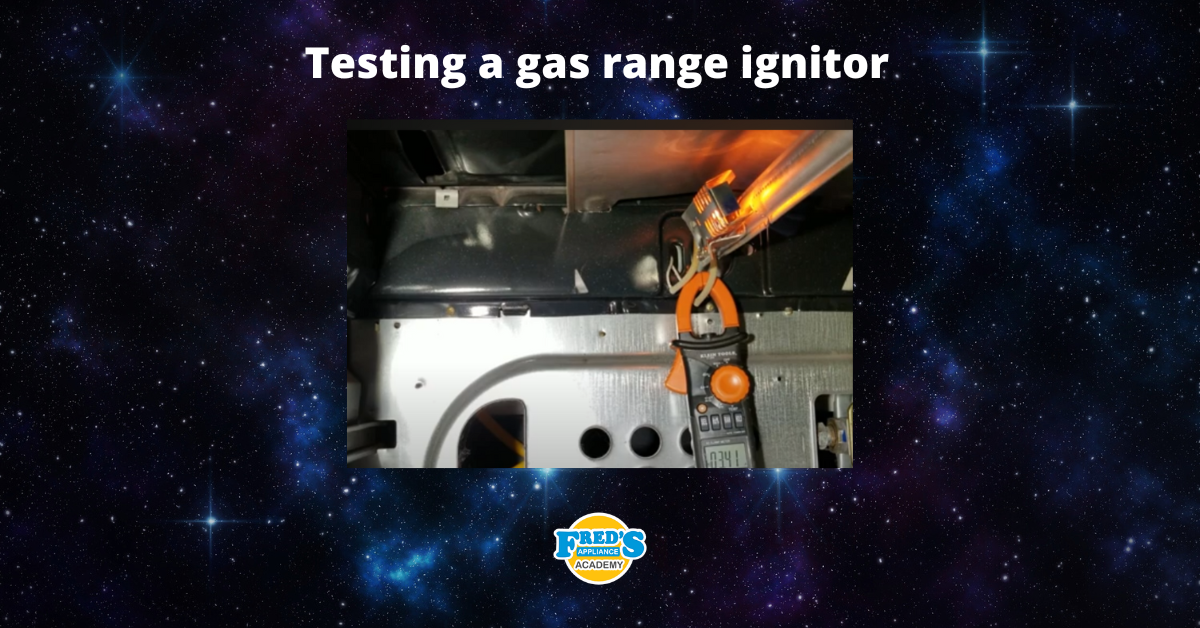
How to test a gas range ignitor

Congrats to our graduating March 2024 class

How to test a 120 volt receptacle

Congrats to our graduating February 2024 class
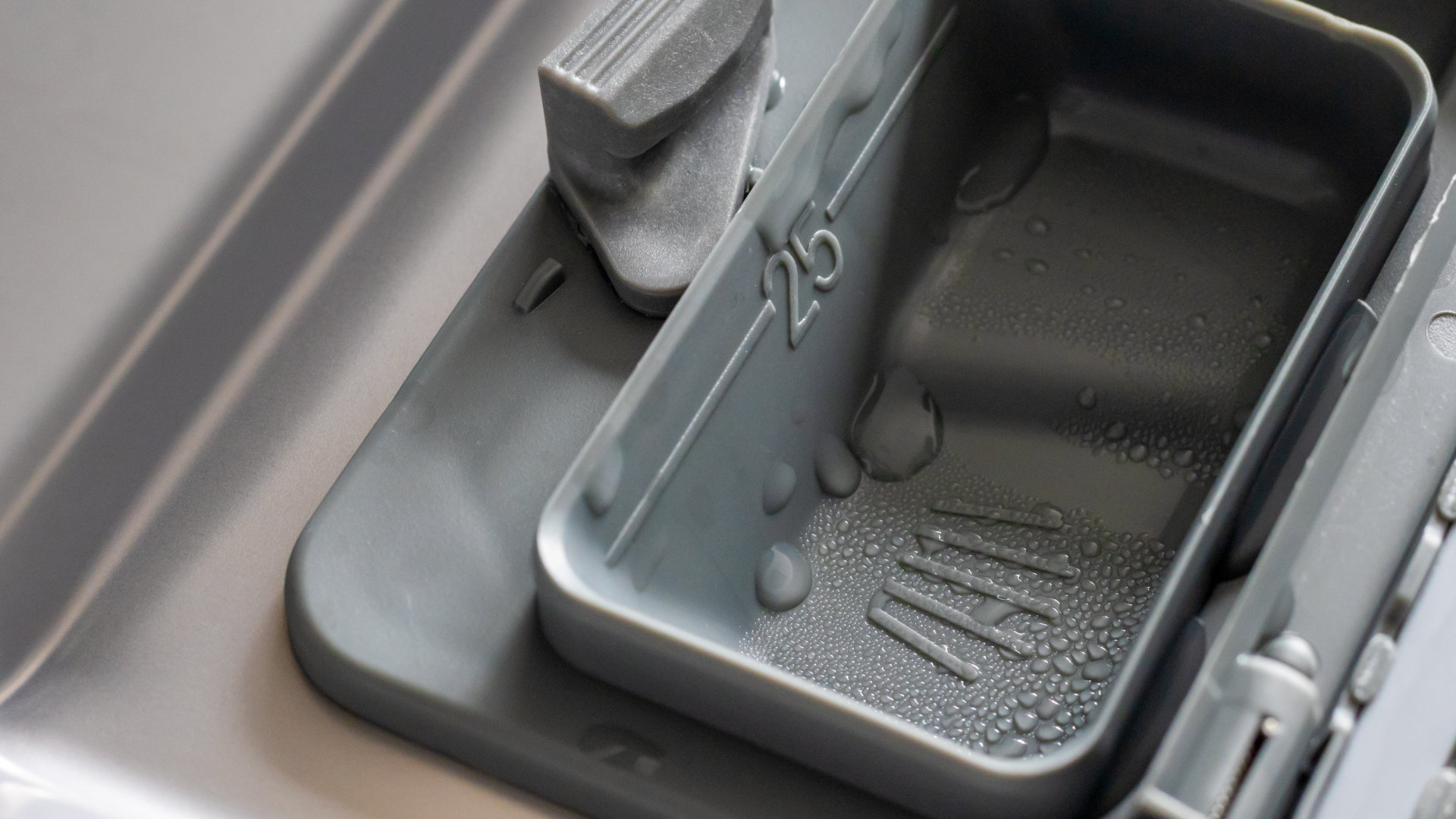
Why Is Your Dishwasher Soap Not Dissolving? (5 Easy Fixes)
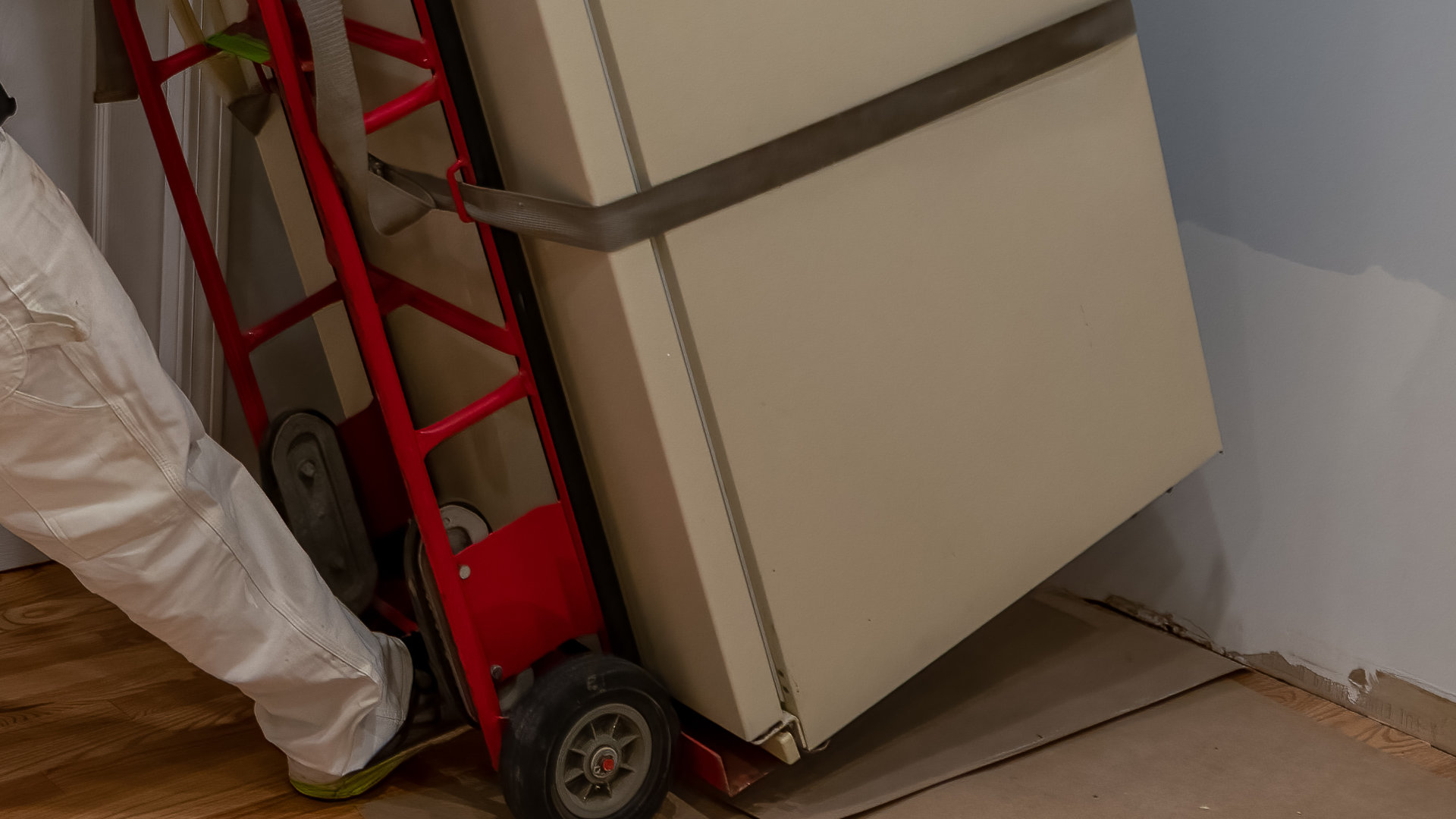
Refrigerator Dripping Water Inside? 5 Quick Fixes

Appliance Industry 2023 Q4 Results

Congrats to our graduating January 2024 class
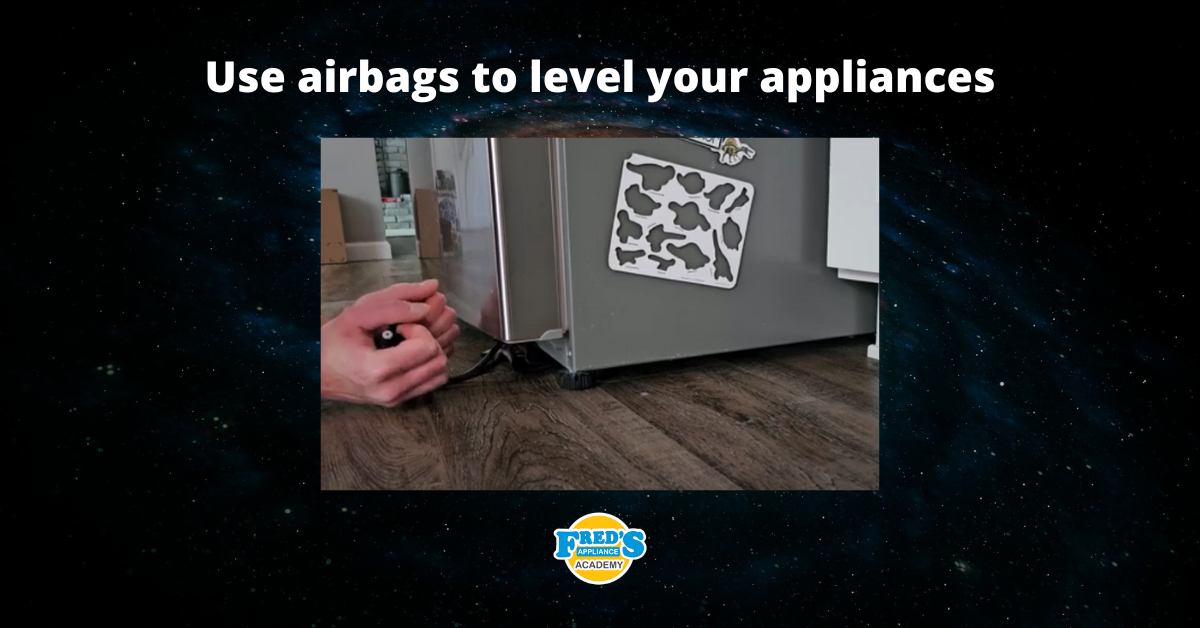
Clever ways to use airbags to level your appliances
